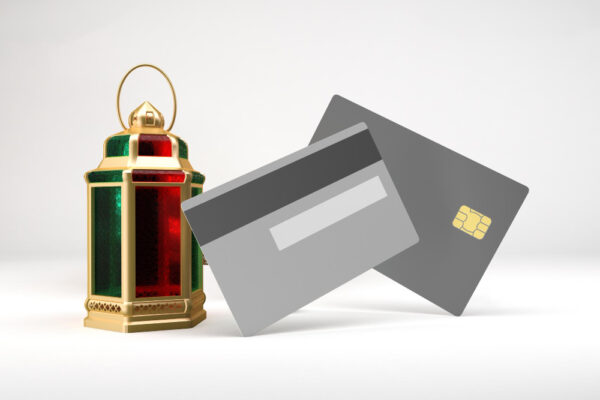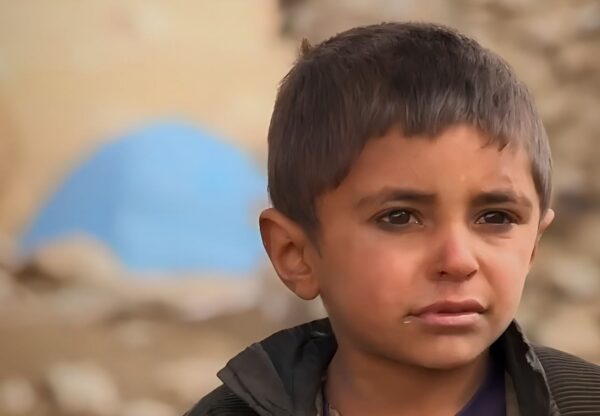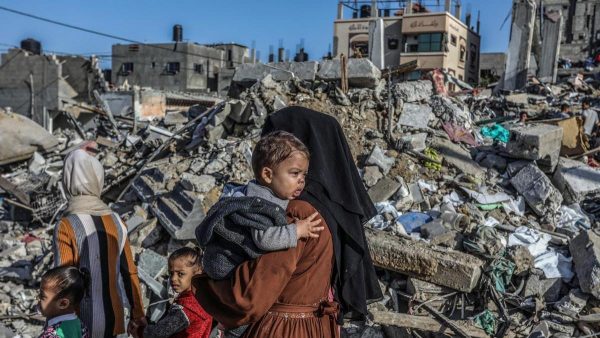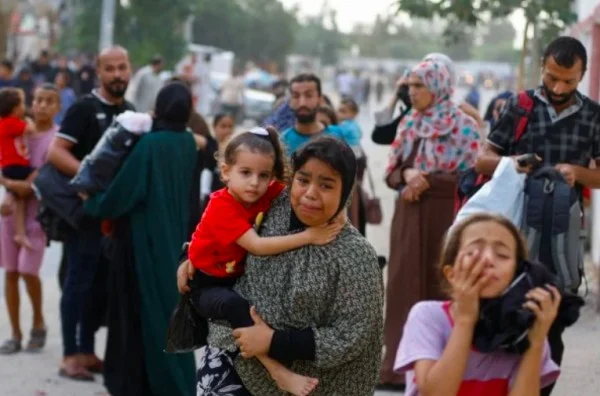Zakāt al-fiṭra (Arabic: زكاة الفطرة) or zakāt al-fiṭr (Arabic: زكاة الفطر) is an obligatory act in jurisprudence which means to give charity to the needy, by certain amount and method of calculation, on the day of Eid al-Fitr. The obligatory amount of zakat al-fitra upon each person –based on the usual main food- is one sa’ (around 3 Kg.) of either of wheat, barley, date, or raisin; or its equal in cash.
Giving zakat al-fitra is obligatory upon the head of households who are not poor themselves. The time for it, is before the Eid Prayer or zuhr prayer in Eid al-Fitr. The distribution categories of zakat al-fitra are the same as those of zakat. According to the narrations, paying zakat al-fitra completes fasting, secures its acceptance, saves the person from death in the following year, and complements zakat.
Meaning
Fitra has some senses:
- The creation, that is the form and appearance of the creature; in this case, the meaning of zakat al-fitra is the charity of the creature, and in the same line, it has been referred to as the charity for the body, since it saves the body from calamities.
- Islam; in this case, the meaning of zakat al-fitra is the charity of Islam. The relation between zakat al-fitra and Islam is that of a pillar and a building since zakat is one of the ritualistic pillars of Islam.
- Iftar (breaking fast) as opposed to fasting; in this sense, zakat al-fitra means zakat of breaking fast.
In Narrations
- Imam al-Sadiq (a) was asked about the exegesis of this verse, “Felicitous is he who pays zakat”; he replied, “it means the one who pays zakat al-fitra”. Then they asked about the exegesis of the following verse, “and [the one who] celebrates the Name of his Lord, and prays.” The Imam replied: “it means the person who goes to the desert (outdoors) then prays (the eid prayer).”
- Imam al-Sadiq (a) said, “(one) of the complements of fasting (or the sign of fasting’s completion), is paying zakat, (that is, zakat al-fitra) like the way sending salutation to the Prophet (s) is the complement of prayer; for whoever fasts but does not pay zakat, there’s no fasting for him if abandons it willfully; and whoever abandons salutation to the Prophet (s), there’s no prayer for him. Almighty God has placed zakat before prayer and said: ‘Felicitous is he who pays zakat, and celebrates the Name of his Lord, then prays’.”
- Imam ‘Ali (a) says: whoever pays zakat al-fitra, Almighty God will compensate by it whatever (amount) he has skimped of his zakat.
- Imam al-Sadiq (a) says, “whoever ends his fasting with nice words or nice actions, Almighty God will accept his fasting.” People asked: “O, son of the Apostle of God! What is the nice word?” He replied: “attestation that there’s no god (literally: person or deity deserving worship) but Allah and the nice action is paying zakat al-fitra.”
- Imam al-Sadiq (a) told Mut’ab, his deputy, “go and give zakat al-fitra for each person who is in our household and don’t forget anyone, for if you forget anyone, I fear of missing for that person.” “What is missing?” Mut’ab asked, Imam (a) replied, “Death”.
Obligatory Rule
Zakat al-fitra is one of obligatory worships, that is, when doing it, the person must have the intention of proximity to God for the act to be correct.
Conditions of Obligation
|
|
This section is a general introduction to the rulings of a fiqhi topic. |
- General conditions of taklif; that is, paying zakat al-fitra is not obligatory upon the insane or religiously underage.
- Conciseness: zakat al-fitra is not obligatory upon a person who has been unconscious during the last sunset of the month of Ramadan.
- Needlessness: zakat al-fitra is not obligatory for the poor. According to the common view among scholars, the religious definition of poor is “a person who has neither potential nor actual sustenance sufficient for one year of his life and his family.”
Some of the previous scholars have defined the poor as the person who does not own as much as one of the zakat limits or its equal in cash. Some scholars have mentioned some details regarding the poor.
- The criteria and conditions for the obligation of Zakat al-Fitra must exist for the person from before the last sunset of the month of Ramadan until the sunset actually happens; hereupon, if a person had the conditions of zakat al-fitra’s obligation before the sunset but lost any of them before sunset happens (like he turns insane or poor shortly before sunset) upon such a person zakat al-fitra is not obligatory; however if a person gains some of these conditions afterward -until the eid prayer or the noontime of the Eid’s day- paying zakat al-fitra is recommended for him. Some of the contemporary scholars said: if the conditions are provided sometimes between the sunset and the eid prayer, then paying zakat al-fitra is Obligatory Caution. Some scholars also believe: the existence of conditions during sunset is enough for the obligation of zakat al-fitra, even if they were not provided before that time.
Those upon Whom Zakat Al-Fitra Is Obligatory
All those who live in the house, whether young or old, free or slave, Muslim or infidel, for each of these members, the head of the household must pay zakat al-fitra. Since the head of the household is responsible for paying zakat al-fitra, other members of the house are not required to pay it, even if the head of household ignores his responsibility.
Zakat al-Fitra of the Guest
The host must pay zakat al-fitra for a guest who has spent the last sunset of the month of Ramadan in his house. However, there’s a disagreement among scholars as to whether or not having one meal at a house makes paying zakat al-fitra obligatory upon the host. Some believe that if the use of the word “guest” is correct, then the paying of zakat al-fitra is obligatory upon the host even if the guest arrives shortly before sunset, but some other scholars hold the view that in this particular issue, a guest is meant who is commonly viewed as a member of the household. There are other views as well, like for the zakat al-fitra to be obligatory upon the host, the guest must have spent the whole month of Ramadan in that house, the second half, the last ten nights, the last two nights, or the last night.
Type and Amount
Concerning the type of food for paying zakat al-fitra, the words of jurists are different. Some only have counted wheat, barley, dates, and raisin; some have added corn and curd; the third group has added milk and the last group has added rice to the previous categories. Famous ones from among later scholars defined it as the usual food of most of the people.
The amount of zakat al-fitra for each individual is one sa’ (around 3 kg). In paying Zakat al-Fitra, it is enough to pay equal cash instead of the mentioned amount. Click to pay Zakat al-Fitr.
Time of Obligation
According to the famous view among later scholars, the obligation’s time for zakat al-fitra starts from the last sunset of the month of Ramadan. Some hold the view that it starts from the fajr of the day of Eid al-Fitr (first of Shawwal). The end of the obligation’s period is a matter of disagreement. Some hold it to be the time of eid prayer, others believe it is the noontime of the day of Eid and some extend it to the sunset of the day.
Whether or not it is permissible to pay zakat al-fitra before its obligation time starts, is disputed. According to one view, it is permissible to pay zakat al-fitra from the beginning of the month of Ramadan.
If a person does not pay zakat al-fitra during its obligation time, there are two cases:
- During the time of obligation he has singled out the amount of zakat al-fitra from the rest of his wealth and put it in a separate place, with the intention of paying zakat al-fitra, in this case, he can pay this amount even after the obligation’s time.
- He has not separated the amount of zakat al-fitra during its obligation time, in this case, the opinions are different; some scholars believe he has committed a sin but does not have any obligation to pay it after its time; those scholars who believe such a person must pay zakat al-fitra have different opinions as to whether he should have the ada’ intention (intention of fulfilling an obligation in its time) or the qada’ intention (intention of fulfilling an obligation after its time).
Distribution Categories
According to the common and famous view among scholars, the categories of distribution of zakat al-fitra are the same as those of zakat; however, it appears from the words of some of early jurists that they limited its distribution to the poor, some contemporary scholars have the same opinion but based on obligatory precaution. According to some scholars, when no Twelver Shi’a is available, giving zakat al-fitra to qasir (mustad’af) non-Shi’a is permissible.
One who pays zakat may pay it directly to the deserving person, i.e., any of the distribution categories, but it is better to give it to the infallible Imam (a) or his deputy.
According to the famous view among scholars, giving less than one sa’ (about 3 kg.) of zakat al-fitra to each of the needy people is not permissible; however, if the number of needy people does not allow such portioned distribution (the number of needy people is more than the collected zakat) it is permissible to give each of them less than one sa’. In the opposite situation, it is permissible to give one needy person more than one sa’, or even giving him up to the amount with which he is not considered needy any longer (i.e., he has the one-year sustenance)
It is recommended that zakat al-fitra be given to the poor among the relatives or neighbors. Also, preferring the virtues and knowledgeable needy person over other normal needy people is recommended.
A Sayyid can receive neither zakat nor zakat al-fitra from a non-Sayyid (rather, he can only receive it from a Sayyid); however, if khums or other contributed charity does not suffice for his life, he may receive zakat from a non-Sayyid.














